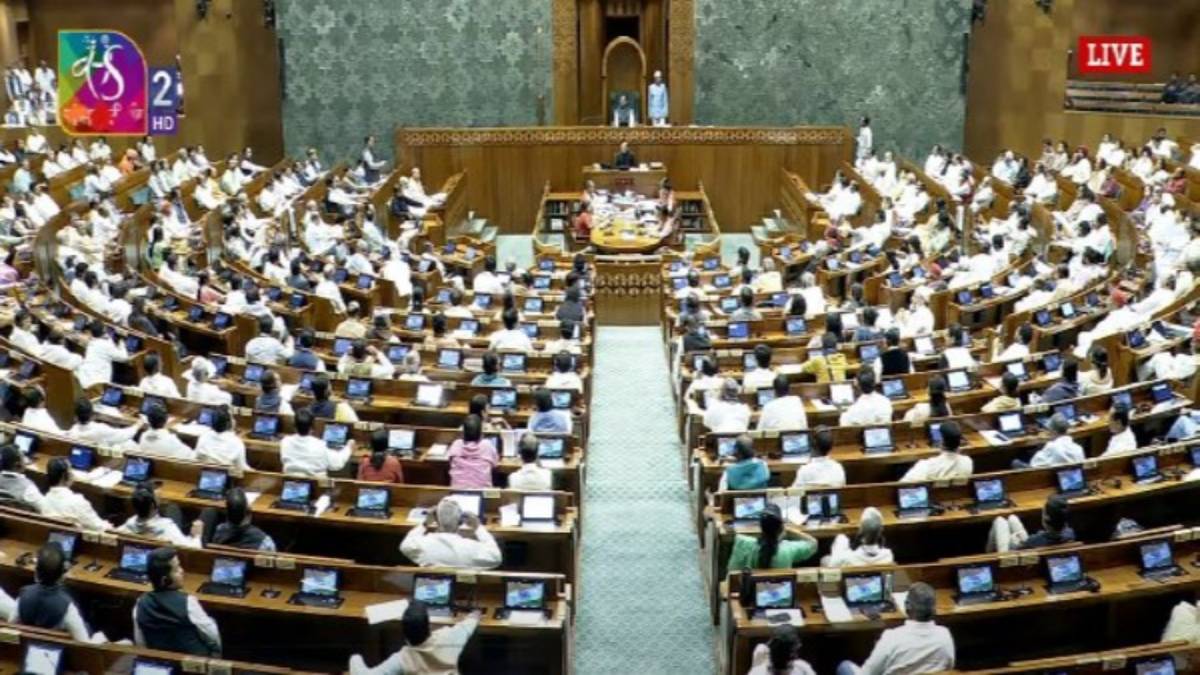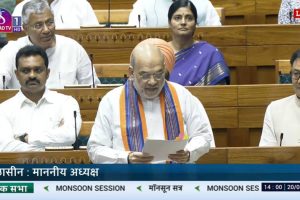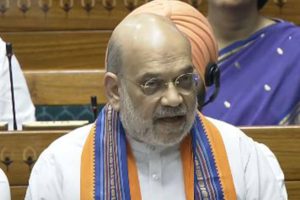Union Home Minister Amit Shah is set to introduce three significant legislations in the Lok Sabha on Wednesday, including the Constitution (130th Amendment) Bill, 2025, which proposes the removal of Union or State Ministers facing corruption or serious criminal charges if they are detained for 30 consecutive days.
The Constitution (One Hundred and Thirtieth Amendment) Bill, along with the Government of Union Territories (Amendment) Bill, 2025 and the Jammu and Kashmir Reorganisation (Amendment) Bill, 2025, is scheduled to be referred to a Joint Committee comprising 21 members of the Lok Sabha and 10 members of the Rajya Sabha.
The J&K Reorganisation (Amendment) Bill seeks to amend Section 54 of the 2019 Act to provide a clear legal framework for the removal of the Chief Minister or Ministers in case of arrest or detention on account of serious criminal offences. The bill outlines that:
- A Minister detained for 30 consecutive days on charges punishable with imprisonment of five years or more shall be removed by the Lieutenant Governor, based on the Chief Minister’s advice.
- If no such advice is tendered by the 31st day, the Minister will automatically cease to hold office.
- In the case of a Chief Minister, resignation must be tendered by the 31st day of custody, failing which he or she will automatically cease to hold office.
- On release, such individuals may be reappointed to office as per existing provisions.
The statement of objects and reasons argues that ministers facing serious charges undermine constitutional morality, governance standards, and public trust, hence necessitating the amendment.
Meanwhile, Union IT Minister Ashwini Vaishnaw is expected to introduce the Promotion and Regulation of Online Gaming Bill, 2025, aimed at regulating the e-sports, educational, and social gaming sectors while prohibiting online money games operating across states or from overseas.
The bill seeks to:
- Protect vulnerable groups from adverse social, economic, and psychological impacts of online gaming.
- Ensure responsible use of digital platforms while maintaining public health and order.
- Safeguard financial systems, national security, and sovereignty through a uniform national regulatory framework.
Both sets of legislations are likely to spark heated debate in Parliament, given their wide-ranging political, legal, and social implications.





